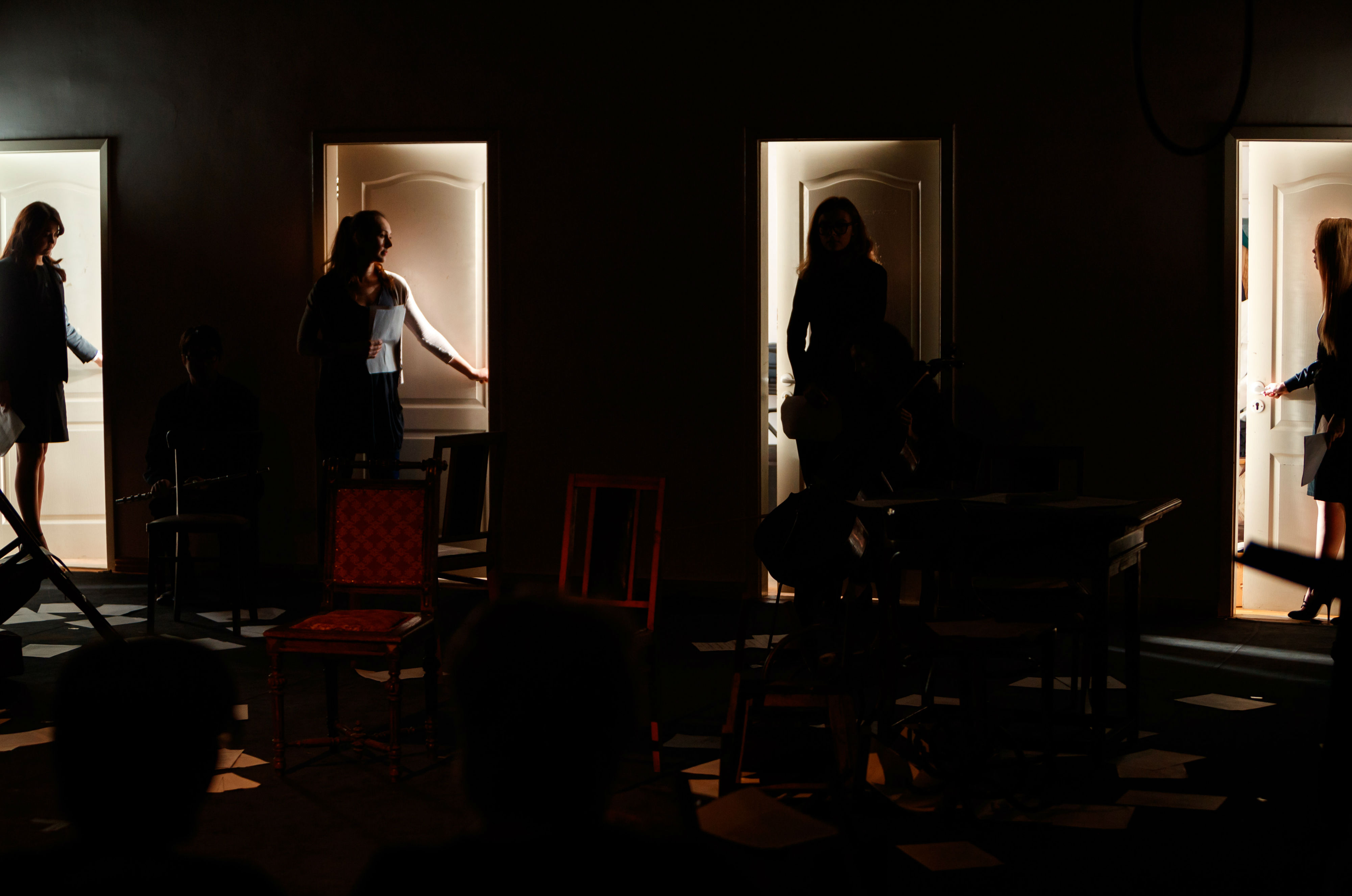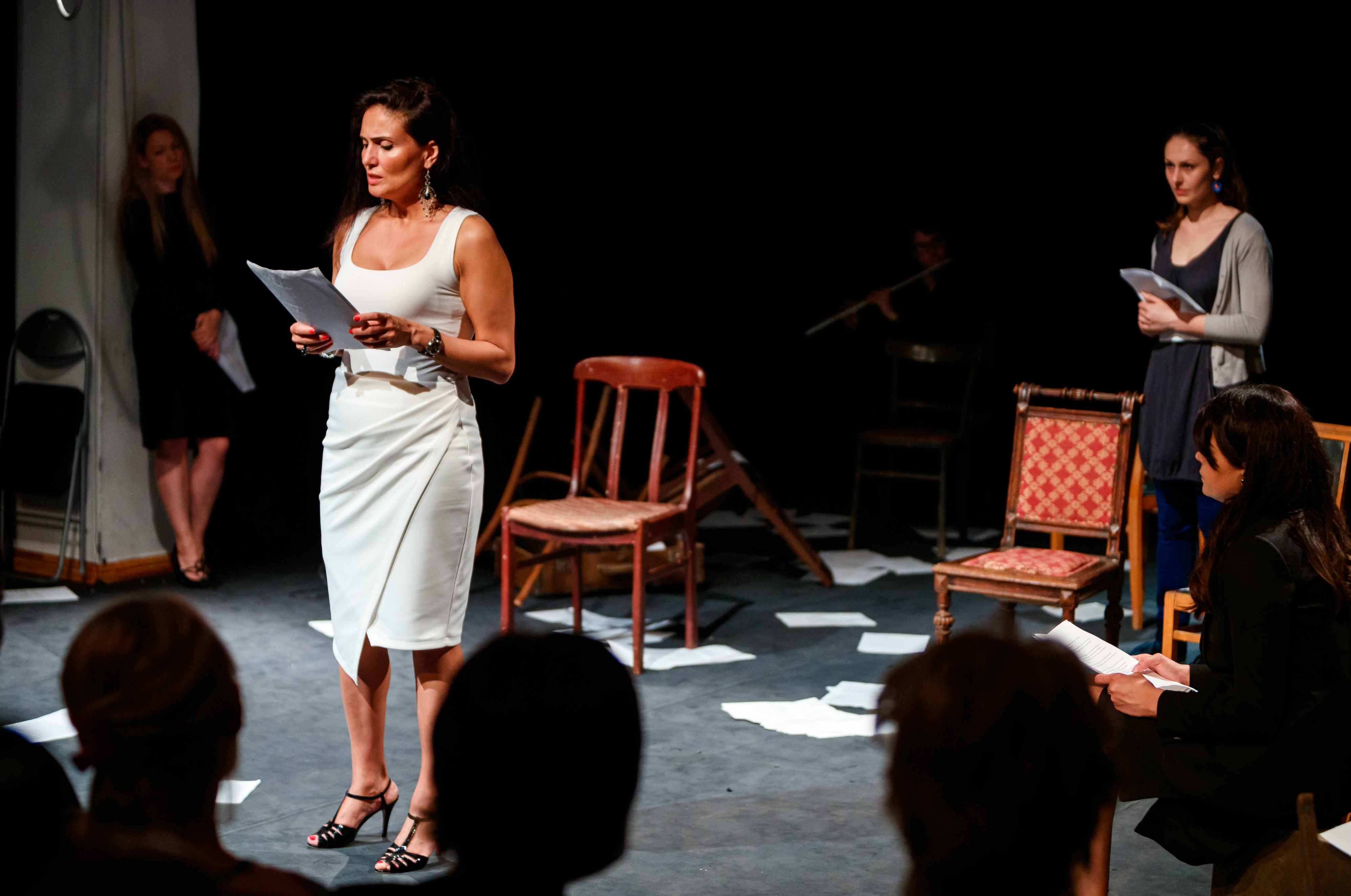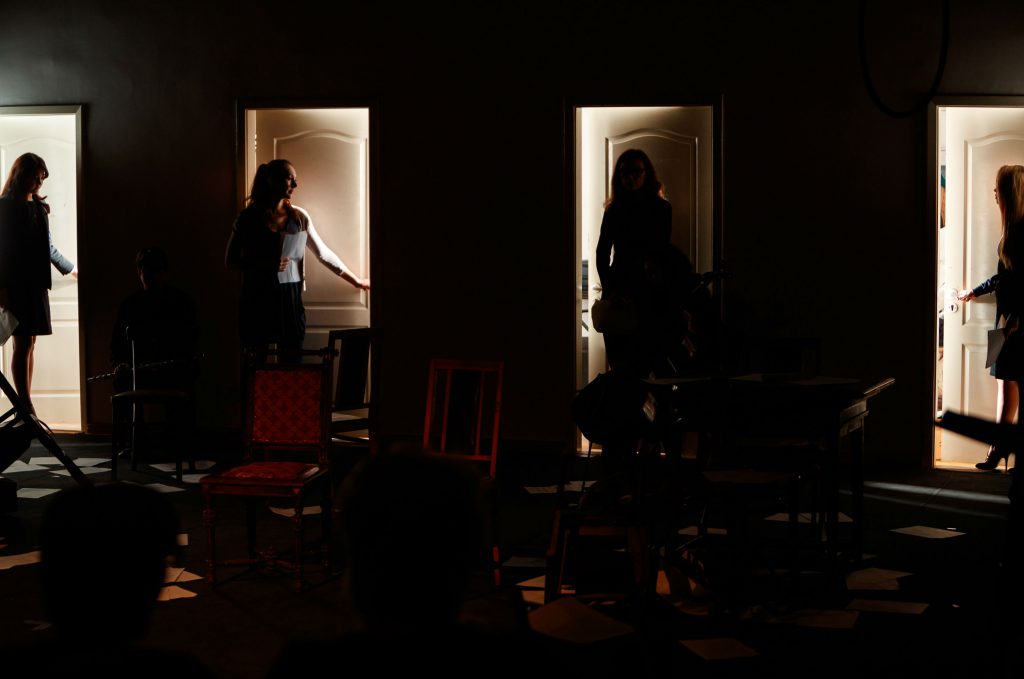 “In July, armed men came to their house and searched it for three hours looking for Ukrainian flags. The next day, Olena fled her hometown.”
“In July, armed men came to their house and searched it for three hours looking for Ukrainian flags. The next day, Olena fled her hometown.”
So began the odyssey of Olena, an internally displaced person from Donetsk who was driven from her home by the conflict in 2014. Like Ukraine’s other 1.7 million IDPs, her life is forever divided into “before” and “after” the war.
Olena’s story, and six others like it, was part of “Women’s Voices,” a play highlighting the plight of IDPs that premiered at Kyiv’s Les’ Kurbas National Center for Theatre Arts on May 31. Funded by the US Institute for Peace and the Embassy of France in Ukraine, the project was organized by the Ukrainian Women’s Fund. The NGO began by collecting oral testimonies from internally displaced women living in Kharkiv and Vinnytsia.
The project ended with shows in five communities in Vinnytsia oblast, as well as in Kyiv, that were performed by a range of actors and non-actors, including Sevgil Musayeva-Borovyk, editor of Ukrainska Pravda; Heorhiy Tuka, Ukraine’s Deputy Minister of Temporarily Occupied Territories and IDPs; Anastasia Deeva, Deputy Interior Minister in charge of European integration; Olha Chubareva, singer at National Philharmonic of Ukraine, Kateryna Levina-Trostianska, an actress from Luhansk; and Uliana Lib, an actress who is from Donetsk.

Olha Chubareva, a singer at National Philharmonic of Ukraine, takes part in “Women’s Voices,” on May 31 in Kyiv. Credit: Ukrainian Women’s Fund.
More than 350 people attended the shows, which had an immediate impact on their audience. According to Ukrainian Women’s Fund, the city council in Khmilnyk increased the city budget for IDPs shortly after the performance there.
That’s not surprising. The women share experiences of fear, concern about loved ones, and the uncertainty that comes with being plucked from one’s home; they convey a direct sense of emotional upheaval and despair. A sampling of their stories follows.
Olga lived in Donetsk and felt proud of her city. In spring 2014, as the fighting started in Slovyansk, people from rebel-held towns in the Donetsk and Luhansk regions started seeking refuge in Donetsk. Soon armed strangers could be seen in Donetsk, and it was no longer safe. Olga and her son moved to Vinnytsia, where her brother lived, and then went to Kharkiv, where her son enrolled in a sports college. Olga also stayed in Kharkiv, found a job, and started her life all over again.
One day she noticed negative attitudes toward her because she was an internally displaced person, and she began thinking about how she could help local residents overcome their prejudice. She came up with the idea of starting a museum to share photographs of the peaceful lives IDPs had lived in their hometowns before the war. Later, when she went to visit her parents in Donetsk, she hardly recognized her home city. Now all she and other IDPs have left are the pictures of their hometowns.
Irina used to have a wonderful life in Donetsk. She worked for a big company, and owned a house and a car. When the fighting started, Iryna took two weeks off work and went on vacation, hoping that by the time she came back, everything would be resolved. However, the situation had become even worse and she decided to move to Mariupol. Living conditions and rental prices in Mariupol were terrible; local people seemed happy to make a profit off of those running from the war. Iryna decided to go back home to Donetsk, but she didn’t stay long because the city was being constantly shelled. Instead, she moved to Kharkiv, where she adjusted quickly and even met her future husband.
Oksana used to live not far from the town of Makiyivka. When clashes and protests erupted near the Donetsk administration building, people began accusing her of being a pro-Ukraine supporter. Oksana was open about her pro-Ukraine position, and other residents started avoiding her. Meanwhile, her son took up arms and joined the Donbas battalion. In October 2014, her son transferred to the 93rd airmobile brigade, and he is still fighting. Oksana took her mother and daughter and left the town in September; they moved to the small town of Bar in the Vinnytsia region. It was not easy to find a place to live, as nobody wanted to rent a house to refugees from the Donbas. It hurt to be discriminated against. And as soldiers come back from the war, her son has no place to go, because they do not have a home anymore.
Tetiana lived in the small mining town in Luhansk region. Her two adult sons graduated from universities and had good jobs in Luhansk; Tetiana ran a small business, her husband was a retired miner, and the family owned a house. Life was good. Tetiana and her family did not even know how much they loved Ukraine until the Russians came in. Pro-Russian protesters were very aggressive and Ukraine supporters began to fear for their lives. When Russian Cossacks occupied the city in the spring of 2014, Tetiana and her friends began receiving direct threats, and the family finally had to leave town. They stayed in Kyiv for four weeks and then moved to Khmilnyk, where they rented an apartment. Despite all of the difficulties, Tetiana and her family would never leave Ukraine in search of a better life because they love their homeland. Their only dream is for Ukraine to be free.
Amanda Abrams is a freelance writer based in Durham, NC.
Image: “Women’s Voices,” a play highlighting the plight of Ukraine’s IDPs premiered at Kyiv’s Les’ Kurbas National Center for Theatre Arts on May 31. Credit: Ukrainian Women’s Fund
